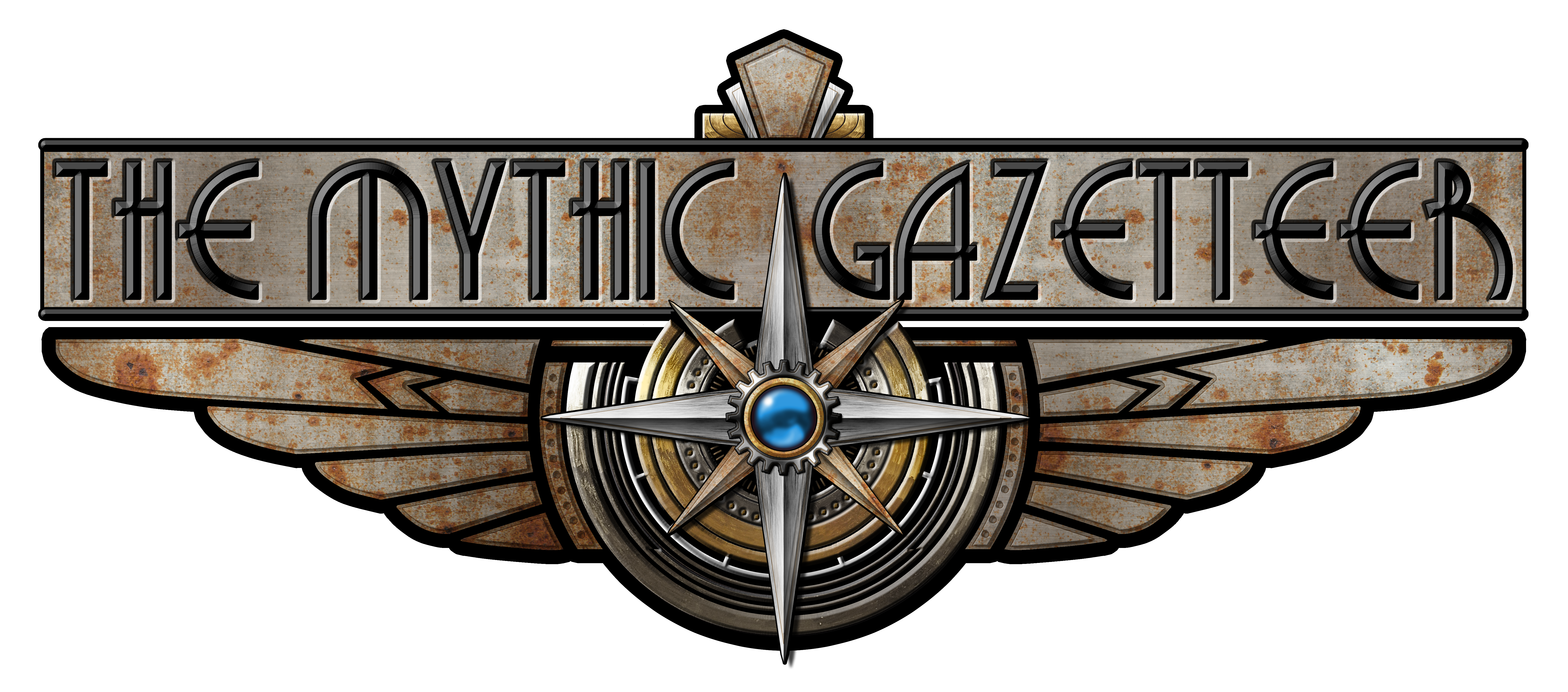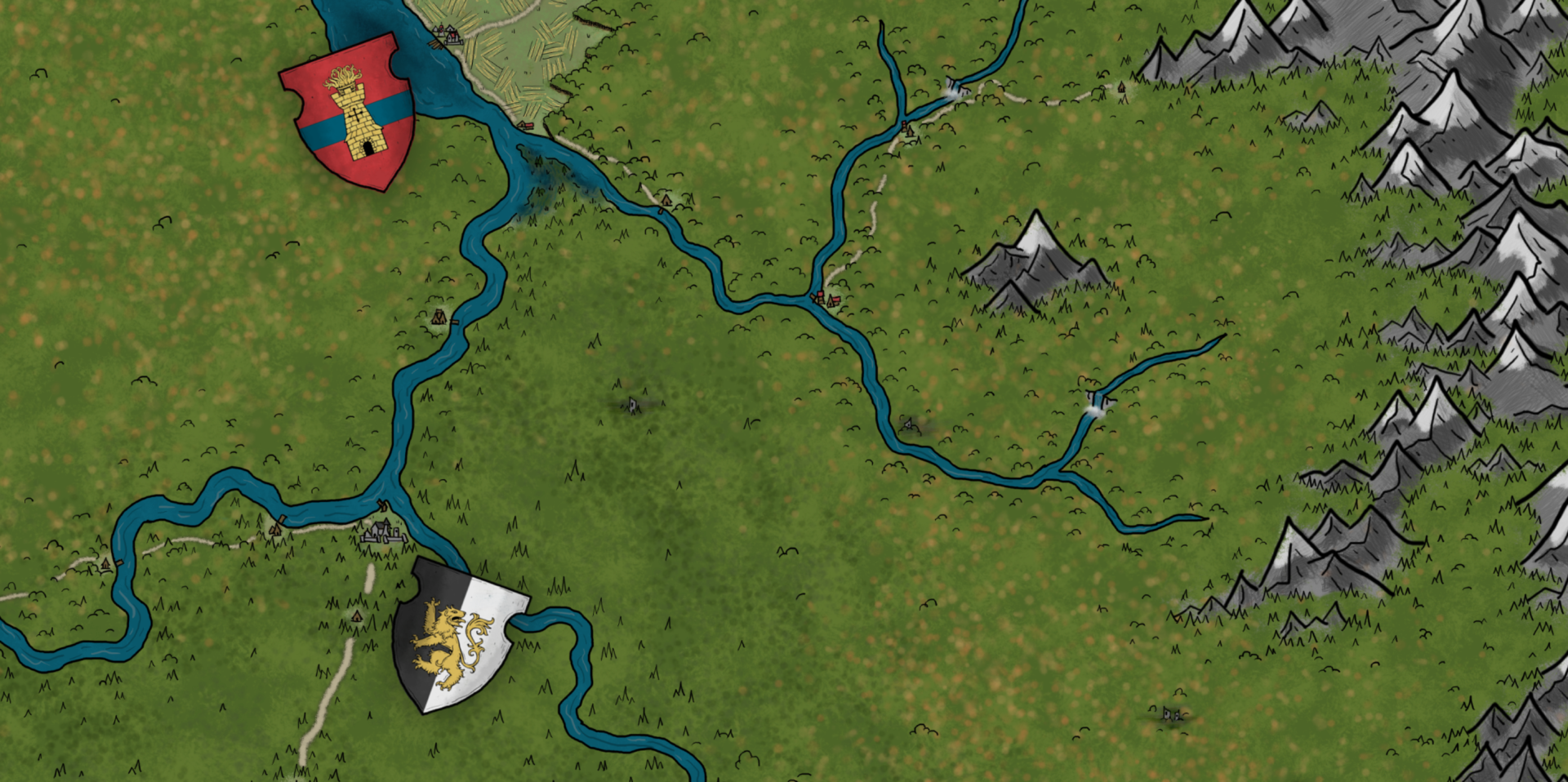Mythic Gaming pt. 1: Getting Help
Last time, I mentioned a Ted Talk about using D&D as a child to gain vital tools to make sense of the world. Is there a better example out there right now than Stranger Things? No spoilers, but a group of nerdy kids eventually uses the teamwork, knowledge, and skills they picked up playing Dungeons and Dragons to tackle the strange(r) things that beset their small Indiana town. In a way, it’s the Mighty Ducks of roleplaying games.
The thing that drew the boys of Stranger Things into the game–the root cause that lead to gaining vital knowledge and camaraderie–was the promise of a story. On the tabletop, we wrangle (sometimes colossal) mechanics to play out all kinds of action and intrigue, but the stories we create and tell to others are the true heart of gaming.
We humans have been telling stories since we developed language. Stories are popular, easy to digest, and easy to market… so everyone and their cousin wants to think of themselves as a “storyteller” of some kind. But what then? What is storytelling, and what is it for?
For me, storytelling is central to a long, important history of mythmaking in our species.
Getting on the Same Page
First, let’s consider what we mean by “myth.” Actual mythologists define it different ways, but nearly all of them summarize myth as a ritualized guide through the trials of life. To be instructive, myth must reflect its society. By observation, we can see that this reflection is almost always distilled from its base elements; myth works best when it is potent and fantastical. Finally, myth is made both universal and deeply personal through ritual. So: can we find (or include) potent elements of ritual and societal reflection/instruction in the tabletop hobby?
A Common Ritual
It may not seem so, but this last criterion is easiest to connect to the goal of tabletop mythmaking. In A Short History Of Myth, Karen Armstrong says “mythology is usually inseparable from ritual. Many myths make no sense outside a liturgical drama that brings them to life, and are incomprehensible in a profane setting.” She goes on to explain that these rituals lend universality to myth: whether in London or St. Louis, communion is the same in every Catholic church. A person looking to unlock the power of a ritual must perform it for themselves, so what is universal is made personal, and–for those who pay attention–personally meaningful.
We each bring traditions to the table when we game. Some of you are beer and pretzels people, some are LARPers, some are broadcasting online from all around the world. Some work up elaborate set pieces and miniatures while others let each player paint their own picture in the theatre of the mind, but we all tend to enjoy a few specific things. What’s more, we miss our traditions when we move away, or when our table doesn’t feel the same, or even when we try out a new gaming system. Our traditions are specific but widely shared, and we tend to stick with them.
In addition to our idiosyncrasies, we’re all joined by one common ritual: the dice (yeah I see ya, diceless RPG folks). The oldest gaming dice were discovered at the Royal Cemetery at Ur, and are dated nearly 5,000 years old. The rituals of the shake, the roll, and probably also beseeching the gods of fortune are at least as old as the pyramids at Giza. Talk about tradition!
These our various rituals are shared by everyone at the table, your “society” and–I don’t know about you–some of my closest friends. The dice inspire joy and terror by the whim of chance. There’s an argument that they pull you out of the story, but the risk and reward they carry can be a powerful tool to achieve the transcendence and “flow” which is necessary for mythmaking.
Heightened Story, Heightened Lessons
Supported by ritual, myth is supposed to be a fantastic guide to learning how to live. Fantasy is easy: in Ye Olde Magickal England or the most accurate modern setting, we’re still playing a game that is fundamentally a work of imagination. It’s also no stretch to imagine most games tending toward big, bold storytelling. Even historical games deal with subject matter more exciting than the humdrum of everyday life.
In Search of Myths and Heroes, a PBS program available online, says myths “answer timeless questions and serve as a compass to each generation. The myths of lost paradise, for example, give people hope that by living a virtuous life, they can earn a better life in the hereafter.” Myth points people toward success and virtue. In The Power of Myth with Bill Moyers, Joseph Campbell said “thinking in mythological terms helps to put you in accord with the inevitables of this vale of tears.” As humans, our first instincts are curiosity and survival. As living things we want to live but we won’t live forever. Figuring out what works best for our safety and prosperity helps us live successfully but myth must also help us come to peace with inevitables like illness, suffering, and death. We can find this instruction in scholarly texts and self help rags at kiosks, but only when combined with ritual and fantasy do we discover myth.
There’s an orc band terrorizing the countryside. They raze a settlement and burn the cottages, then carry off the goods, women, and children. Wash, rinse, and repeat all over the map. The players know the orcs to be bad for these reasons and seek them out to destroy them. Fighting on behalf of the downtrodden, dispensing justice to the guilty: the compass of our adventure points toward morality! By telling this story together, we reinforce a shared idea of what is “right action.”
For all the games about righteous heroes, there are as many or more about crafty rogues just looking to grab some wealth and glory from those caves out in the hills. These characters are called Murder Hobos for a reason: morality isn’t often their primary concern. Still, the real world isn’t much of a moral place either. Learning to triumph when times are tough–even at the expense of someone else–doesn’t make you a good person but it can teach you about certain measurements of success. By exploring these amoral actions in the context of a game, we can learn from their consequences with very little responsibility to worry about (but oh, those poor, innocent villagers). Pretending to be bad can help us better understand what it means to be good by providing an interactive counterexample.
What to Do With it All?
So not only does tabletop roleplaying act as a mirror of its players and their culture, but it does so in a larger-than-life context that blows up our view of the subject matter. We better understand our lives because we see them up close and in slow motion at the table. Then, all of this is ritualized by the convention of action resolution through dice rolls, which both brings us together under a common act and increases the stakes of the story. And, of course, this ritual is one of many to be found at each unique table of friends.
Tabletop roleplaying has the potential for mythic storytelling, but how do you make use of that potential in your games? Post your ideas below, and stay tuned for my own thoughts on Monday.

